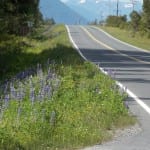A state agency has extended the public comment period on a proposed renewal of a statewide general permit for using pesticides. The Alaska Department of Environmental Conservation has granted an additional 30 days for comment following concerns from Petersburg.
The DEC is proposing to renew what’s called a pesticide general permit for using chemicals to control mosquitos, weeds, invasive animals or forest pests. It allows for discharge of chemical or biological pollutants into water ways and regulates that pollution on lands statewide, except for the Metlakatla Indian Reserve and Denali National Park and Preserve. The state took over the responsibility for permitting the use of pesticides from the Environmental Protection Agency in 2012. The DEC’s existing permit expires October 31st.
A public comment period on the renewal was set to end September 2nd but it has been extended until October 3rd.
“We received a couple comments requesting for an extension and with that the department reviewed those comments and authorized the extension for the 30 days,” said Jim Rypkema, the storm water and wetlands program manager with the state’s Division of Water.
Because of the extended comment period the existing permit may expire before the state is able to renew. Pesticide use that’s already authorized would be allowed to continue until the permit is renewed or the DEC decides not to renew.
The Petersburg borough government sent a letter in August seeking that comment period extension along with public hearings on the permit renewal. The letter cites concerns with chemical contamination of fish, fish habitat and drinking water sources. The borough is asking for additional protections for pesticides applied near any fish habitat or drinking water sources.
“Our fishermen rely on clean, uncontaminated water for the proper development of the seafood harvested,” the letter says.
Brian Lynch was one of the local residents urging the municipal government this summer to write the state about the extension. Lynch calls it “vitally important” to have hearings in Petersburg and elsewhere. “I would like to see public hearings around the state,” Lynch said. “This is a statewide permit and I think it’s really imperative. A lot of people are really concerned about this issue and how it affects both human and environmental health so I think it’s really an important thing.” Lynch encourages people to get online and learn about the permit and comment to the DEC.
The DEC’s Rypkema says his agency plans to do some outreach but has not scheduled any hearings. “At this time the department honored the request for the extension,” Rypkema said. “At this time a hearing isn’t planned as yet. The division of water director is going to be in the Southeast area and is looking to do some public outreach.” Rypkema thinks that outreach will happen sometime in September.
In 2013, a state regulation change eliminated the need for pesticide use permits on state-owned lands. State agencies only have to write what’s called an integrated pest management plan outlining the planned use of pesticides. The Department of Transportation has filed such a plan for controlling weeds, trees and shrubs along roadways statewide. Southeast residents have opposed prior DOT proposals to use chemicals for roadway clearing. Department of Transportation spokesman Jeremy Woodrow says that agency has not done any vegetation control with herbicides along state roads in Southeast and doesn’t have plans to in the future. He writes in an email that in Southeast the DOT will stick with mechanical trimming of trees and bushes along roadsides. Woodrow notes that the DOT has used herbicides elsewhere in the state “with much praise by locals and partnering environmental groups.”

The Alaska Department of Transportation says it will continue with only mechanical trimming of plants along roadsides in Southeast.
Active permits and plans for use of pesticides in Alaska can be viewed on the DEC’s Pesticide Control Program website. Another plan filed with the state allows the use of pesticide for vegetation control at Ketchikan’s airport. The U.S. Fish and Wildlife Service is permitted for controlling invasive plants at the Mendenhall Wetlands near Juneau and the Yukon and White Pass Railroad has filed a plan for weed control along its tracks around Skagway.
The DEC’s pesticide permit can be viewed here and the state’s pesticide control program permits and plans here.









